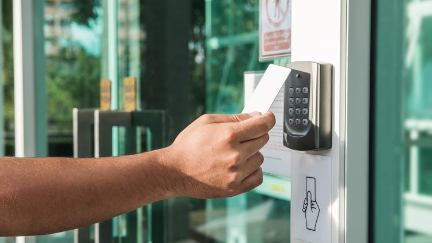A sector-wide focus on efficiency does not necessarily extend to many organizations’ centralized 3-phase uninterruptible power supply (UPS) systems. Today, these systems routinely achieve 94% to 96% efficiency in normal operational mode. Economy …
filters
Explore All Topics
Data center uninterruptible power supply (UPS) systems are evolving. New technologies are enabling various electrical approaches. But will UPS systems of the future meet the changing requirements of operators? This report discusses UPS adoption…
Across the world, data center owners and managers are striving to buy more renewable energy and reduce their dependence on fossil fuels. The global internet giants and the largest colocation companies have led the way with huge green energy…
Uptime Institute Members say one of their most vexing security concerns is the insider threat — authorized staff, vendors or visitors acting with malicious intent.In extreme examples, trusted individuals could power down servers and other equipment,…
Avoiding downtime remains a top priority for all managers of critical infrastructure. But as technology changes, and as the demands placed on IT change, so do the types, frequency and impacts of outages, as well as the best practices in outage…
In early March 2021, a hacker group publicly exposed the username and password of an administrative account of a security camera vendor. The credentials enabled them to access 150,000 commercial security systems and, potentially, set up subsequent…
The catastrophic fire that occurred at OVHcloud’s SBG2 data center in Strasbourg, France (see Note 93, The OVHcloud data center fire) has led many operators to question their vulnerability to fires.Fires at data centers are a constant concern, but…
The fire that destroyed a data center (and damaged others) at the OVHcloud facility in Strasbourg, France, on March 10-11, 2021, has raised a multitude of questions from concerned data center operators and customers around the world. Chief among…
Data center operators routinely maintain multiple physical perimeters against intruders and regulate the activities of the people inside. However, cloud computing and increased remote monitoring and automation bring new security challenges. Human…
Recent extreme weather-related events in the US (the big freeze in Texas, fires on the west coast) have once again highlighted the need for data center operators to reassess their risks in the face of climate change. The topic is discussed in depth…
In Uptime Institute’s recent report on preparing for the extreme effects of climate change (The gathering storm: Climate change and data center resiliency), there were over a dozen references to the dangers of extremely hot weather, which can…
Power failures have always been one of the top causes of serious IT service outages. The loss of power to a data center can be devastating, and its consequences have fully justified the huge expense and effort that go into preventing such events.But…
Recent events have heightened concerns around physical security for many data center operators, and with good reason: the pandemic means many data centers may still be short-staffed, less time may have been available for review of and training on…
Through 2021 and beyond, the world will begin to recover from its acute crisis — COVID-19 — and will turn its attention to other matters. Few if any of these issues will be as important as climate change, a chronic condition that will become more…
Following a scramble to effectively staff data centers during a pandemic, many wary managers are beginning to see remote monitoring and automation systems in a more positive light, including those driven by AI.The reasoning is clear. Against a…
 Intelligence Team
Intelligence Team


 Jay Dietrich
Jay Dietrich

 Andy Lawrence
Andy Lawrence


